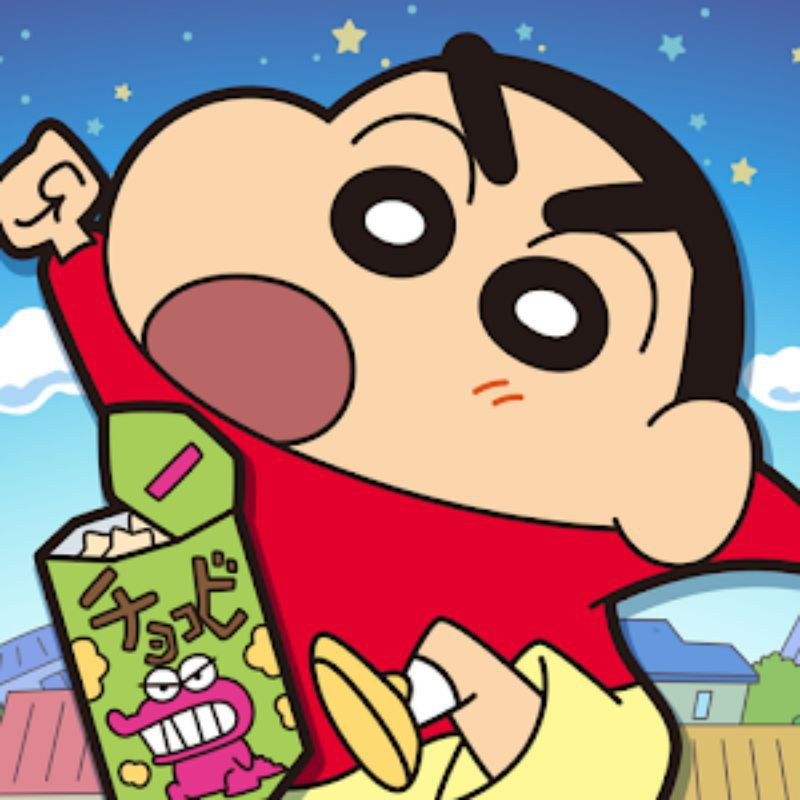I. Subtraction - Enhancing focus by separating topics
It should be said that most of the technical people have a sense of anxiety: “programmers 35 years old crisis”, “growth is too slow, work for 5 years is still a big head soldier”, “accidentally engaged in a production failure, I feel that I can not stay”, “responsible for this business seems to have no future” and so on. “, “responsible for the business does not seem to have a future” and so on.
Anxiety comes from the uncertainty of the future and dissatisfaction with oneself. Recently, I read the book “The Courage to be Hated”, in which it is mentioned that anxiety/low self-esteem is often due to the failure to do a good job of “separation of issues”, we tend to “other people’s trafficking in anxiety” (PUA, 35 years old crisis), imposed on their own feelings, and this kind of internal friction continues to eat away at our concentration (which could have been a good thing). This internal conflict is constantly eating away at our ability to focus (which we could be using to really improve ourselves).
Therefore, to combat anxiety, first, we need to separate the subject of “trafficked anxiety”, and second, we need to take the right posture, manage our own desires, and improve our “dissatisfaction” through spiraling “growth”. “The second is to take the right posture, manage your desires, and improve your dissatisfaction by spiraling into growth.
Addition - Matching Reasonable Desires through Spiral Growth
**2.1. Match your cognition and skills with your desires
The essence of growth is to spiral your perceptions and skills Matching your perceptions and skills to your desires Desires come from the pursuit of a sense of value.
The sense of value is a very personal and subjective color, but also with the innate traits related, you have to fully understand your own good at it, to give yourself a suitable position at the moment. Architects are not necessarily suitable for TL/CTO, and likewise TL/CTO do not rely solely on solving complex technical problems to get to the top.
So, how to get to the top? Very recognized before the boss said a sentence: there is no pit, let yourself first become the carrot, choose a runway you recognize stick to it, others did not do a good job, you can always do a good job, and will take the initiative to put forward a better plan, when the pit appears, you are naturally the best carrot inside.
2.2 Be wary of low levels of hard work
A notable characteristic of low levels is passivity, and repetition. Today I am mostly trapped in the information cocoon (you enjoy the pleasure of the headline Shaking 10s knowledge fast food, can not stop, you year after year, to complete a trivial project), you enter a relatively familiar pattern of repetition, repeating themselves every day, the most afraid of 1 year of work experience, repeat 10 years, commonly known as the “tool man! The worst thing you can do is to repeat yourself every day for 10 years after 1 year of experience, commonly known as the “toolman” or “porter”.
As said earlier, the same inside a pit, you can solve the problem that others can not solve, must not rely on repetition of effort and diligence, the need to have a new perception of the problem, and the skills to match.
“If you have a hammer in your hand, all you’ll ever see is nails” - Munger*
Counter-example #1: Taking a hammer to a nail
Many people are good at familiar areas and past experiences to optimize, but do not stand at the source of the problem and higher perspective to analyze the problem, which often leads to one-sided, and short-sighted. For example, test architecture, many people are good at building a better tool than the original (to solve a better use of the problem), but lack of thinking about the nature of the problem to be solved (how to solve the coverage, how to improve the ROI of the test), then there will not be a system of methods oriented to different layered testing.
(Difference between different thinking paths)
Counter-example 2: Thinking about the essence is the only way to solve the problem fundamentally
Only thinking oriented to the essence of the problem can bring about fundamental change, so how can we get to the essence of the problem? In fact, it is to be from the surface (figurative), to the abstract (universal principles) constantly penetrate the process.
find the trunk: is to think in higher dimensions, from the child nodes back up, and then from the root node down to traverse, in order to find more possibilities for solving the problem. Like just finding a horse that runs faster, then you won’t invent the automobile.
Find the fulcrum: find the core of the key variables, solve it can bring fundamental change. Whether you are doing business, or technology, the fulcrum is the strategy, the leverage to solve the problem.
Hypothesis and extrapolation: it is the process of constantly making hypotheses and arguments, not only to consider the present, but also to face the future.
(A case of technical capital loss)
(Essence-oriented thinking)
2.3 You need to awaken
After some time, you no longer want to be held down and rubbed against the ground by business, so you feel confused and anxious. As a pursuing you, obviously you have realized the problem, your knowledge and skills, no longer match your goals and desires.
So you want to improve your ability, expand your horizons, get promotion opportunities, have a decent job, so big that you want to figure out the ultimate meaning of life, who am I? Where do I come from? Where am I going? The class philosophy of life.
Third, the key ability to break the game
A long time ago, the CEO lucy summarized the three ability model of ali people (** heart, brain, body **), I think the summarization is very accurate, put at any time are not out of date.
3.1 Heart power: it refers to the ability of self-reflection, self-driven, independent thinking
Many awesome people spend their lives going through choices, taking many detours, and fighting against all kinds of failures and setbacks. And not all of them are able to remain optimistic and aggressive in the midst of failures and setbacks; some stop moving forward, while others are able to grow stronger with each setback. “The real heroes are those who see the truth of life and still love it” -Roman Laurent. Recognizing the self and improving the mind is not an easy task.
Exercising mindfulness starts with opening one’s heart, staying curious, and being able to communicate with more people. Different levels and positions of responsibility have different perspectives, which will help you form a more comprehensive view of you and reflect on yourself from all angles. Usually people who are good at communicating will have a more comprehensive perception of people and things, and don’t get stuck in their own world.
In times of confusion, it is recommended to think more on a value (customer value, personal value) level rather than focusing on specific things. Self-proofing, doubting, and suffering will only greatly deplete your mind and energy, and you’re so firmly sucked in that there’s no way to focus. No matter how big or small something is, it actually has value, and doing it to the best of your ability and getting immediate feedback is what creates a positive cycle.
When we say that a person’s potential is unlimited, the logic behind it is that the value and meaning of life is defined by you; the desire for happiness, the desire for the sublime, all give you unlimited power. Meditatively, you will run in one direction and give it your all because you have a powerful desire for purpose. You can get up and keep going even after falling down because you recognize that it is not the past or the evaluation of others that determines the future, but the future that you define for yourself.
That’s why students are especially encouraged to participate in more complex, multi-team projects, which will greatly exercise your mental strength. Thinking of 18 years of departmental organization “concentric walk, Xuanzang Road”, it is hard to believe that I hiked 120 kilometers in four days and three nights, “ideals, perseverance, action”, whenever I look back, more than physical strength, more exercise is the strength of the heart, there is nothing more difficult than this, and there is no more advanced joy than this. There is nothing more difficult than this, and there is no more advanced happiness than this.
I’m not going to be able to do that.
(The most challenging thing, the highest pleasure)
3.2 Brain power: corresponds to the power of thinking, and the resulting professional power
Thinking power, on the one hand, is the logical ability, we say that the person is very smart, to a large extent, the logical reasoning is clear, good at solving a technical problem (designing an algorithm, troubleshooting a stack). And the other hand is the systematization (structured) ability, determines whether thinking about the problem is comprehensive, the ability to make complex problems simple, such as problem definition, technology planning, domain abstraction, global architecture design. **So technical thinking power, is the ability of ZoomIn and ZoomOut in the technical field, representing the depth and breadth of thinking. **
Thinking is the method, need to be translated into professional knowledge and ability, for technology, is the accumulation and precipitation in a technical field, and have their own output or representative work. On this person is not professional, not talk about the method, in fact, is to say that the person landed what is known as masterpieces.
**3.3 Physical Strength: Corresponding to the power of action, and the power of execution **
To quote Luo Xiang: “The farthest distance in the world is not the distance between Mount Everest and the Marianas Trench, but the distance between knowing and doing.”
Physical strength does not necessarily mean making brute force, but the decisiveness and self-driven power after having the heart and brain to think and think, transforming the idea into practical action, and the willingness to change. Second is the execution, is to formulate strategies, firm implementation, the ability to take the results, and through the positive and negative feedback, and constantly amend their own perception.
Knowing more knowledge and traveling more roads are not as sound as winning a battle. For new students, I generally recommend that they go to the front as soon as possible, to participate in the actual project, even if the head is broken, the growth is the fastest.
Fourth, how to learn?
4.1 Cognize yourself, more important than cognitive knowledge points
Understand their own shortcomings, determine the intention of learning, the problem is the best teacher, he will lead you, do not rely on a whim (such as a line of technical students, to learn corporate strategy). Secondly, more about themselves, such as a student’s expression ability is very poor, I do not recommend him to learn how to speak and debate, but to train the most basic “Pyramid Principle”, “Structured Thinking” and other bottom thinking (think clearly, in order to speak clearly). Another example is that some people are often glassy-eyed and weak in stress capacity, not necessarily because of poor execution, but probably from the wrong self-perception and evaluation, so how to improve the nature of the heart is very important.
Analyze where you need to improve, and at what level you need to improve. I met a student who was very hardworking and eager to improve himself, expecting to be responsible for more areas, but my advice to him was to improve his “structured thinking and expression” first, because no matter what projects he did, it was very difficult for people to communicate with him, and he himself also lacked the ability to summarize and refine his ideas.
I’m not sure how to summarize it, but I’m not sure how to summarize it.
Meta-knowledge: It is the method and truth of social consensus, such as XXX principle, XXX method , it is with the industry is irrelevant, through reading, experience can be acquired, you can read more good books, official books.
Knowledge: Knowledge is very large, a bit like Wikipedia, related to all walks of life, not necessarily the standard, but a certain inspiration. Most of the books that people read and short videos that they brush up on fall into this category.
Invisible knowledge: it is the string and application of knowledge points to form a solution to a specific problem, which is the biggest difference between different people, and is usually difficult to learn through books, but rather through everyone’s inspiration->practice->verification.
So as a technical person, at different stages, we have to master the knowledge system:
(Taking payment platform technology as an example)
**4.2 Learning is not to get information, but to internalize it into your own understanding **
First of all, don’t study in a fragmented and short time, but establish your own macro knowledge learning pulse. The era of information explosion, why short videos can catch you, because the story within 10s let you get a sense of inspiration, but if you are inspired by different stories 10 times a day, you can not summarize a one, two, three.
(Comparison of recommended books and columns, often need systematic organization and conception, logic and system is more complete. In addition to recommending classic books, representing the underlying meta-knowledge, popular and best-selling can be used as an aid to interest)
Secondly, learn to slow down when you are triggered to think, and stuck, such as a new concept, obscure logic, or a suggestion given to you by others. Your perceptions, and new concepts will conflict, do not rely on the experience within the boundaries to give a quick answer, but to ** get used to ask a few more why (5 why rule) ** until you find that most essential answer.
For promotions, knowledge points can be expanded by surprise, while competence cannot be achieved quickly, the reason is that people are used to thinking fast, and it is most natural to give an answer by relying on the intuition within the experience. In the case of promotion, rational thinking outside the boundaries cannot be acquired and expressed naturally by short-term acquisition.
4.3 Learning by example, teaching by example, and improving knowledge retention
While it is enough to understand a truth by immediate inspiration, it is difficult and challenging to acquire a systematized knowledge.
The reason for this is that ordinary people are naturally receptive to figurative content (closest to experience and enlightening), whereas in the face of abstract knowledge understanding, the




